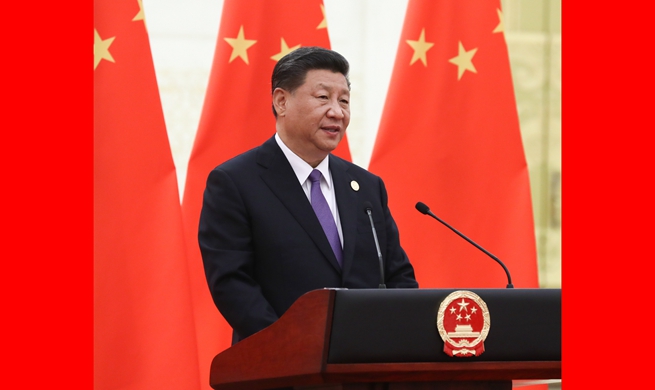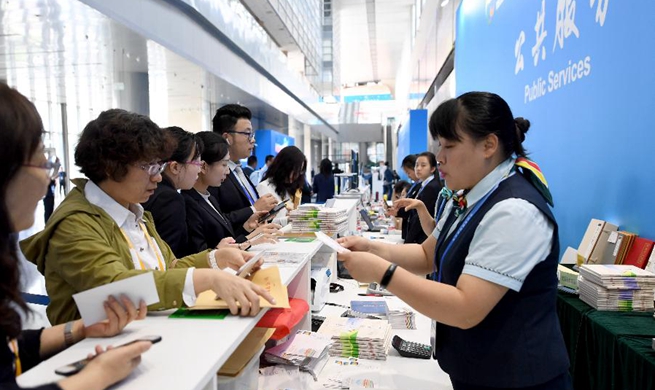CAPE TOWN, May 14 (Xinhua) -- Stubbornly high unemployment in South Africa is like "a ticking time bomb" that would spell calamity for the country, the Congress of South African Trade Unions (COSATU) warned on Tuesday.
Workers expect to see the government place massively reducing unemployment at the heart of all government programs, from national to provinces to municipalities to state-owned enterprises (SOEs), said COSATU, the country's largest union federation with more than 3 million members.
Earlier on Tuesday, Statistics South Africa (Stats SA) released its Quarterly Labor Force Survey for the first quarter of 2019, which shows that the country's unemployment has risen by 0.5 percentage points to 27.6 percent compared to the fourth quarter of 2018.
The increase in the unemployment rate is a result of decline of 237,000 in the number of people in employment and an increase of 62,000 in the number of people who were unemployed between the fourth quarter of 2018 and the first quarter of 2019, according to the survey.
This came on the heels of the Spectator Index in January which revealed that South Africa is the country with the highest youth unemployment rate in the world, with about 52.8 percent of young people unemployed. Spectator Index is a weekly British magazine on politics, culture and current affairs.
"This is calamitous for the country because it means millions of young people will be dependent on the state for their well being and that of their families," COSATU national spokesperson Sizwe Pamla said.
The political leaders and the government entrusted with managing the economy should hang their heads in shame because the inequities of their favored economic system has condemned thousands of South Africans to lives of brute survival and hopelessness, said Pamla.
South Africa needs an economic development model that will dismantle the current colonial and apartheid economic and social policy paradigm that is unsustainable, Pamla said.
"We need an economic trajectory that will ensure that there is a proper redistribution of income and that more people are allowed to participate in the economy," he said.
The last two decades have shown that all of this cannot be left at the hands of the market and the notion that foreign direct investment (FDI) is everything, Pamla said.
COSATU has been critical of the regressive and contractionary policies pursued by the government.
The federation says these policies only focus on cutting social expenditure and weaken the capacity of the state.
The deceleration of fiscal spending since 2014 and now the outright reduction of spending plunged the economy into the doldrums in an environment of depressed private sector investment and household spending, according to COSATU.
The government cannot keep applying the same macroeconomic framework that led the country to this current position and still go on with the rhetoric about the centrality of job creation and the transformation of the economy, Pamla said.
"We hope that this unemployment report will jolt the government and business into action," he said.
Also on Tuesday, the South African government vowed to tackle rising unemployment through a series of interventions.
The high rate of unemployment is a serious concern to the government, but there are a number of interventions that are being implemented to revive and stimulate economic growth, government spokesperson Phumla Williams said.
Decisive steps are being taken including rebuilding investor confidence, ending corruption, restoring good governance and strengthening critical public institutions, she said.
Unemployment requires all sectors of society to work together to address this challenge, said Williams.
"All South Africans must join hands and make an extraordinary effort to overcome the economic challenges we face," she said.
South Africa hosted the Jobs Summit in October which brought together government, business, labor and community organizations to seek solutions to the country's unemployment challenge.
Through this Jobs Summit, the government, labor, business and the community sector have agreed on concrete interventions to boost employment.
It's estimated that these interventions will create an additional 275,000 direct jobs a year.













